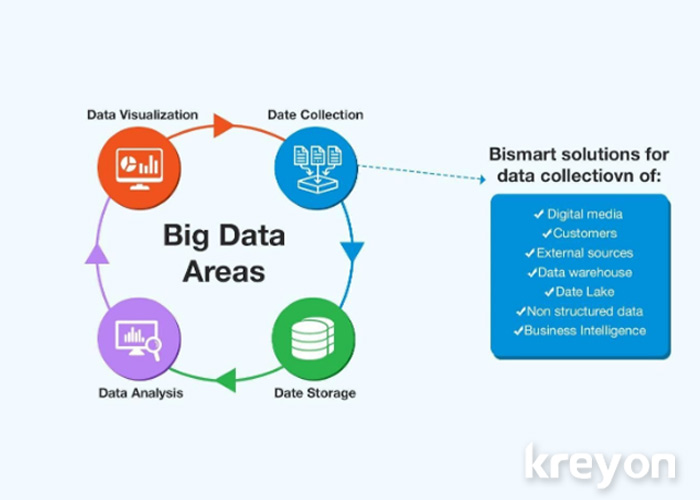Business Data Strategy: Top 7 Tips for Collecting and Using Your Business Data

Today’s business world revolves around business data, and it has grown to become the most potent tool in industries across the globe. Data has become such an essential tool that over 40% of brands around the world are planning to enhance their data-driven marketing strategy, according to this study.
We now have access to advanced technology that makes it easier than ever to collect and analyze data. This post is going to shed some light on the top tips for receiving and getting the most from your business data. But first, let’s look at what makes business data so valuable.
Why is Business Data so Important?
Gathering data has become the single most powerful tool that businesses use to create massive, extraordinary success. It shows how consumers interact with specific companies and how they would respond to certain factors. In short, data shows us how to create the best customer experience possible. Businesses have spoiled consumers, so they are used to getting what they want from their favorite brands.
Also, data helps businesses develop better marketing strategies. In the past, companies would just toss a lot of money at television advertising, radio, and newspaper ads and hope some of it stuck. But our access to data has now removed the guesswork. We can know what types of marketing work and can develop a marketing strategy around that information.
Top 7 Tips to Get the Most out of Business Data
All industries are being affected by data and its disruptive nature. The truth is that companies of all sizes are looking for business analytical solutions to help them separate themselves from the competition. With that said, let’s look at some fantastic tips that will help you get started on the right track.
1. Develop a Process and Follow Through with It
Business processes are essential to keeping everything organized, so this is always the first step to developing a business data strategy. Outline the specific methods you’ll be using to collect data. Then have a plan for organizing and processing that data. This process must be clear and consistent. Outline every step right down to how your marketing team will use the data to focus their strategies.
2. Stay Consistent Throughout

Consistency is essential to working with data because you’ll have to ensure that your process is being followed continuously. If you are asking customers to fill out a form with each purchase, then make sure you are consistently requesting it. If surveys are part of your follow up process, then be sure you have a system in place that follows up with every customer. My point here is that you can’t just create a process, follow it for a few weeks and then forget about it. Data analytics solutions are going to be a part of your standard business practice from this point forward.
3. Define the Types of Business Data is Needed
All businesses are already acquiring massive amounts of data. It can be quite overwhelming to keep track of it all. Fortunately, there’s no point in processing all data. All businesses will have different key metrics that they need to keep track of, so it’s essential to define these metrics. That way, you’re not wasting resources by processing irrelevant data.
4. Make Data Collection as Simple as Possible

Most businesses rely on consumers to provide them with essential information regarding the customer journey. But there is an old business adage that says, “if you confuse them, you lose them.” In short, don’t confuse your customers, or they will not cooperate. Provide secure data collection methods. Also, there are cases where you don’t even need surveys. Technology allows us to track customer behavior on a business website.
5. Don’t Rely on Just One Data Collection Method
There’s no single system that is going to be capable of gathering all of the business data required to provide insight. Businesses must incorporate multiple forms of data collection tools if they want to gain the most from their data strategy. Many types of automated software will make it much easier to gather data and follow up with consumers. The point is that you cannot rely on just one method. You need to pick your data from multiple systems to ensure integrity.
#6: Don’t Ignore the Analytical Phase

Once you have collected raw data, you will need an analytical process in place to transform it into useful information. This critical stage is where businesses benefit from the raw data they have collected, so it must not be taken for granted. Analytical processes look for patterns in data and then communicate those findings with teams so that action can be made. This is one of the reasons why data analysis services have become in demand lately.
7. Never Stop Finding Ways to Improve your Data Strategy
So many businesses will put a data plan in place and then never touch it again. However, that’s a huge mistake because the business landscape evolves at an astonishing rate. Take a step back to evaluate your data strategy. Ask yourself what’s working and then find ways to build on those things. Measuring, analyzing, and improving are the holy trinity of business marketing, so I encourage you to follow this same process when it comes to data. Improve your business data strategy by weeding out methods that are not converting and enhancing ones that are proven to succeed.
Carefully Weigh your Data Management System
By this point, small business owners have had the benefits of data analysis beaten into their heads, so ignorance is no longer the issue at hand here. The biggest obstacle is that small businesses are simply overwhelmed and don’t have the resources to make the most of their data. The solution is to utilize a data management system to stay in control of this overwhelming process.
Business data is a tool for unlocking the full potential of your business. Kreyon Systems is helping companies to make the most of their data & make the right decisions. If you need any assistance, please get in touch with us.
Author Bio:
Gracie Myers is a content & research analyst at Research Optimus. She has expertise in Business Research, Market Research, Business Analytics and many more.
